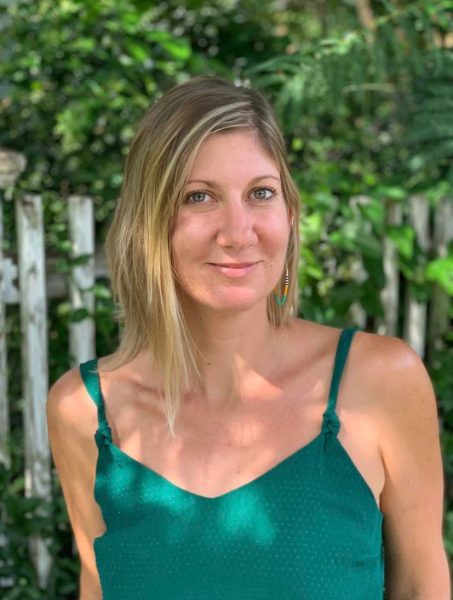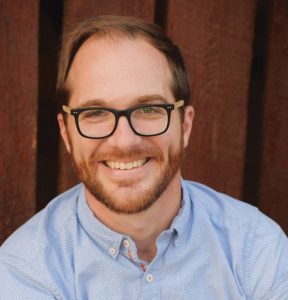The scratch-off tickets are such a brilliant device. What better way to capture fantasized idealism than with the legalized gambling that has the world’s worst odds? First, what’s the most you’ve won on a scratch-off (fifty dollars for me)? Second, what inspired you to use them as this central plotting?
Fifty dollars is impressive. I think the most I’ve won is five dollars, which was still pretty thrilling in memory. The inspiration here is nothing I can take credit for. This is one of those pieces taken in part from real life. My husband, in fact, came to me one morning and told me he’d had a dream where he and his friend (who had committed suicide) bought scratch-off tickets and the friend kept winning. I think that’s as far as the dream went, but I wrote most of the story in one burst based on that idea. I liked the tension between a character getting this chance to be lucky, to win, juxtaposed against the real-life loss. And you’re right, scratch-offs exhibit the most impossible of odds, the kind of luck his friend could only experience in a dream world. But the husband character still gets this joy in seeing the friend happy, even as he must wake up to the reality. I think waking up from a good dream can have a powerful halo effect on the real lives we live.
You create such interesting tension in the narrator’s forced empathy. By the end, they seem to have missed the whole point, though these two come together in sharing failures in listening. Could you talk about this tension of misunderstanding and disconnection?
I see the narrator as well intentioned, even as they’re unable to see beyond their own perceptions of events. They remain centered on their role in the conversation, which is meant to echo that shared failure in listening, though I think there’s empathy for both characters in that failure. The narrator has listened, after all, and it’s likely the husband did as well, but that doesn’t mean the outcome would have been different. I also wonder if I intuitively added the thread of “forced empathy,” as you describe it, because the seed here was a real dream, and so a layer of discomfort enters in telling the intimacy of someone else’s experience, and perhaps the narrator’s semi-selfishness echoes that awareness of the narrative’s origin. The character listens, but they’re preoccupied with their role in the listening.
Dreams are so tough to write well. Few care to hear other people’s dreams in real life. And story craft is often pretty anti-dream. But you use dream perfectly here. What’s your relationship to writing dreams? What do you think they offer that other forms of interiority can’t?
I agree about the tedium of dream accounts in real life. Which is funny when I think about how relatively often I turn to dreams in fiction. Perhaps because I work largely in realism, dreams offer that chance to turn the everyday slightly sideways, to add a bit of magic or strangeness that evokes the core strangeness of being a human animal. I think there’s also an order to dreams; they offer freedom, but they also possess a kind of logic of their own. In the way that a metaphor must fit the themes and voice of the story to be effective, the dream offers up that wholly original fruit, but it can’t be just any fruit, it has to fit the story’s world, the character’s insides. My stories tend to be heavily interior, and I think dreams maybe function as a lightning bolt, a quick way (and they ought to be brief) to laser in on the ineffable. To give that additional layer of meaning without having to say anything outright.
Suicide looms over this piece from the first line, which reminds me of Vonnegut’s famous advice to give the reader as much information as soon as possible. Though you reveal the suicide immediately, you never return to it, yet its emotional weight lingers behind every line. What do you gain from structuring theme like this?
I often talk to my fiction students about the narrative consequence of starting with the dramatic reveal and yet like so much of writing it seems largely intuitive when it happens. With suicide, an act which (to me) always remains (at least in part) inexplicable, perhaps everything is about the aftermath. Almost like it’s a big bang and we’re forever tracing back to that moment hoping to make sense of what’s happened and how to handle grief of this kind. So what we gain narratively is maybe a flavoring, where everything is in the broth of that initial statement. I think about Louise Erdrich’s “The Red Convertible” and how we learn from the opening lines that Lyman’s brother Henry is going to die, and all the joy we see between them also carries that future heaviness. Maybe it also recreates the suddenness and the brutality of suicide in that the story continues but nothing is ever wholly the same.
What writing project are you working on now? What’s next for us big fans?
You’re so kind! I’m in novel land for the most part, revising one and plowing through the next, when time permits. My first book, a collection of stories titled Our Sister Who Will Not Die, is coming out in August, which is both exciting and humbling. But in addition to the longer projects, I usually have various scraps of documents with first lines or ideas for flash pieces. I think flash is great for stepping outside of our regular writing voice, which is especially welcome when you’re in that longer novel project. Flash lets us be wacky, surreal, experimental. Not to mention it’s nice to finish something, to have a clear ending.




 The core workshop of SmokeLong Fitness is all in writing, so you can take part from anywhere at anytime. We are excited about creating a supportive, consistent and structured environment for flash writers to work on their craft in a community. We are thrilled and proud to say that our workshop participants have won, placed, or been listed in every major flash competition. Community works.
The core workshop of SmokeLong Fitness is all in writing, so you can take part from anywhere at anytime. We are excited about creating a supportive, consistent and structured environment for flash writers to work on their craft in a community. We are thrilled and proud to say that our workshop participants have won, placed, or been listed in every major flash competition. Community works.